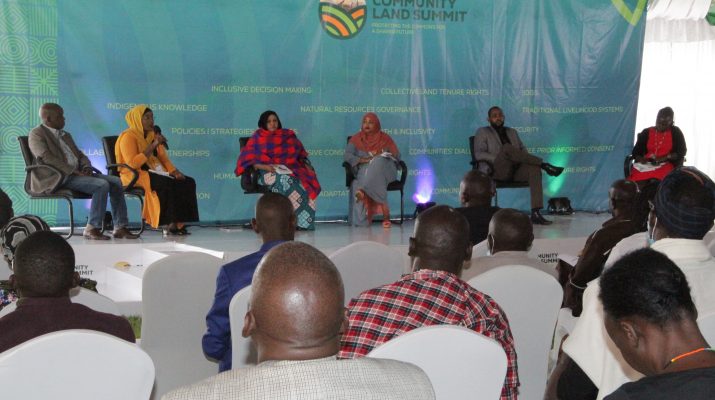The National Land Commission is sorting through the more than 3,000 Historical Land Injustice claims it received from Kenyans, Commission Chairman Gershom Otachi has said.
Otachi noted that a good percentage of those claims being reviewed emanate from indigenous populations of pastoralists and hunter-and-gatherer groups in the country.
Speaking on Tuesday when he opened the East Africa Indigenous Peoples Land Summit at a Nanyuki hotel, the NLC chair added that the review of the claims by the communities would be guided by the Community Land Act (CLA) of 2016 and was expected to offer a pathway for the management and governance of customary and indigenous lands in Kenya.
“Through Community Land Act (CLA), Undissolved group ranches are thus expected to transition to community lands,” Otachi said.
He noted that while the mandate of registering community land belongs to the Ministry of Lands, Public Works, Housing, and Urban Development, the National Land Commission is charged with the task of monitoring that process.
“Therefore, the Commission is a central player in realizing the indigenous people’s rights to land,” he added.
He further said that the Commission had embarked on a sensitization campaign on the need for indigenous people to register communal land through the enacted legislation in the East African Community.
“We are urging communities such as the pastoralists to stop from moving from one place to another because that cannot constitute the laid down policies for them to prove land ownership,” he said.
According to a survey by NLC, 60 percent of Kenyan land mass is classified as arid and semi-arid and is mostly occupied by pastoral populations.
The three-day summit brought representatives from pastoral communities from countries in the East Africa Community (EAC).
Guy Makuluka, representing the hunter and gatherer community from the Democratic Republic of Congo said that his community risked being refugees in their own country as they have no land to call their own since they move from one forest to the other in search of food but upon returning to a previous area, they find it occupied by another community.
“We might find ourselves without food since the areas we gather and hunt are increasingly being encroached by other communities such as farmers who prefer to settle in the place,” Makuluka said.
Elizabeth Katushabe, representing pastoral communities from Uganda said that the former range-lands they used to graze their animals have been taken over by many other land use activities forcing them to move beyond the borders in search of pasture.
“Today you will find the Karamojong community which is largely pastoral has moved to neighbouring countries such as South Sudan and Kenya with their animals since their grazing lands are shrinking by the day. This movement also comes with inter-communal conflicts,” Katushabe said.

